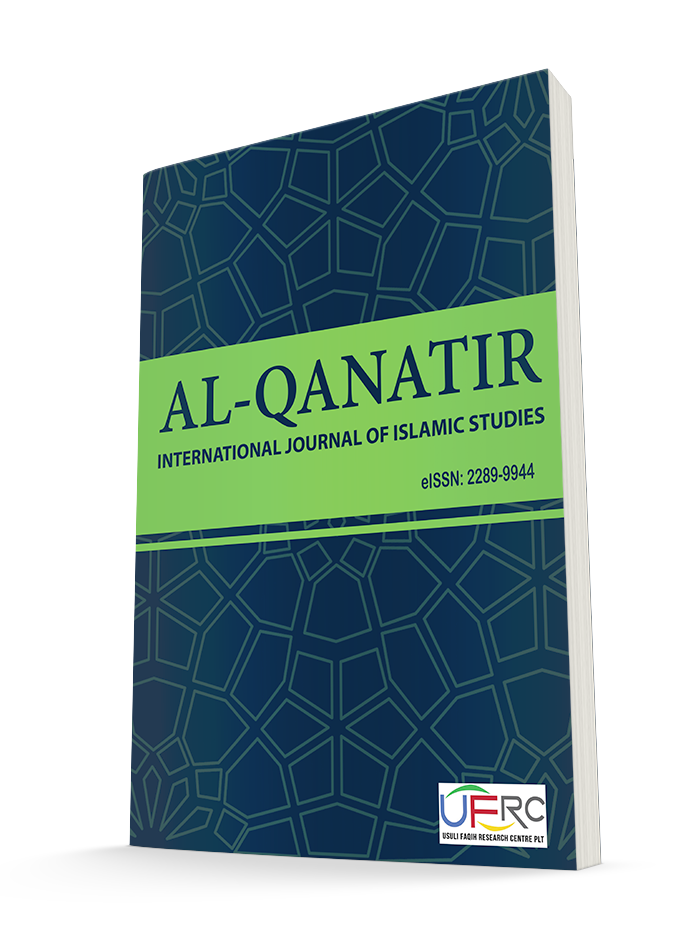Article

The Factors Influences Toward Istibdal Implimentation For Waqf Development: The Way Forward
Al-Qanatir: International Journal of Islamic Studies vol. 16 no. 2 (Page 28-36)View in JFatwa
Hisham Sabri (Author)
Siti Mashitoh Mahamood (Author)
Abstract
Waqf or religious endowments are vital towards Islamic economic growth. It is also considered as a development medium for establishing various public institutions such as schools, hospitals and mosque for the communities. Some of the Muslim scholars have taken a rejuvenate interest in waqf management by istibdal implementation. It become one of the instrument to sustain and utilize the waqf institutions management. This paper aims to identify the role of waqf and istibdal in Muslim society as evidenced from the Quran, Hadith and Ijmak Ulama as well as current fatwa. In a bid to examine these issues, the paper analyzes further in istibdal concept and their benefits that ensure the waqf property is functioning as intended and benefit for the interest of all Muslims. The main issue also focuses on the factors that influenced istibdal such as acquisition by state authority, geographical factor, economic factor, education purpose and management complexity. All of these factors will contributed for the istibdal management process in other states. However, the cases of istibdal needs to be approved by the state fatwa committees. In conclusion, the waqf problem of idle assets and under utilization can be solve through istibdal implimentation. Hence, through systematic Istibdal management will also increase the level of trust among the Muslim communities to contribute for the future waqf development projects.
References
Abu Zahrah, M. 1971. Muhadarat fi al-Waqf. Qaherah: Dar al-Fikr al-Arabi.
Alias, Muhammad, Johari, Fuadah., Abd Rahman, Asma. 2014. Waqf Financing for Higher Education: Issues, Challenges, and the Way forward. Negeri Sembilan: Universiti Sains Islam Malaysia.
al-Asqalani, Ahmad ibn Ali ibn Hajar. 1325H. Tahdhib Al-Tahdhib. N.pl: Majlis Da’irah alMa‘arif Al-Nizamiah, vol.3, p.81.
Jasni, S. 2013. Permissibility of Istibdal in Islamic Law and Practice in Malaysia. Journal of US-China Public Administration.
Cizakca, M. 1998. Awqaf in History and Its Implications for Modern Islamic Economies. Islamic Economic Studies..
al-Qurtubi, Abu Abdullah Muhammad bin Ahmad al-Ansari. N.d. Al-Jamic li al-Ahkam alQur'an. Beirut: Dar Ihya’ al-Thurath al-Arabi. vol. 3, p. 133.
Sabri, H., Jasiran, H. A., & Jusoff, K. 2013. Substitution of Waqf Properties (Istibdal) in Malaysia: Statutory Provisions and Implementations. Middle-East Journal of Scientific Research 13 (Research in Contemporary Islamic Finance and Wealth Management), 23-27.
Shamsiah Abdul Karim. 2010. March. Contemporary of Shari'a Compliance Structuring for the Development and Management of Waqf Asset in Singapore. Kyoto Bulletin of
Islamic Area Studies. Kyoto Buletine of Islamic Area Studies, pp 148
Muslim bin Hajjaj, Abu Husayn. 1329H. Sahih Muslim bi Sharh al-Nawawi. Chapter 5, Book 13, Number 4006.
Nour, Haysam. 2015. Reconsidering The Waqf: Traditional Mechanism of Urban Regeneration in Historic Muslim Cities. International Journal of Architectural Research.Vol.9-Issue 1
Al-Sharbini, S. M. M. A. 1994. Mughni al-Muhtaj ila Ma‘rifat Ma‘ani Alfaz al-Minhaj . Vol. 3. Beirut: Dar al-Kutub al-‘Ilmiyyah.
al-Shawkaniyy, Muhammad bin cAli. 1961. Nayl al-Awtar Sharh Muntaqa al-Akhbar min Ahadith Sayyid al-Abrar. Edition-3. Kaherah: Maktabah wa Matba‘ah Mustafa AlBabi al-Halabi. vol.6, p. 20.
Abdul-Karim, S. 2010. Contemporary Shari'ah Structuring for the Development and Management of Waqf Asset in Singapore. In Durham Thesis. Available at Durham EThesis Online: http://ethesis.dur.ac.uk/778: Durham University, pp 215.
Website
The Share of Wakaf and Substitute Wakaf (Ibdal Wakaf). http:// infad.usim.edu.my/ modules.php?op=modload&name=News&file=article&sid=236 [Accessed on 1st August 2018].
Guidelines
Jabatan Wakaf, Zakat dan Haji (JAWHAR). 2010. Manual Pengurusan Istibdal Wakaf. Putrajaya.
URL
Back View in JFatwa

